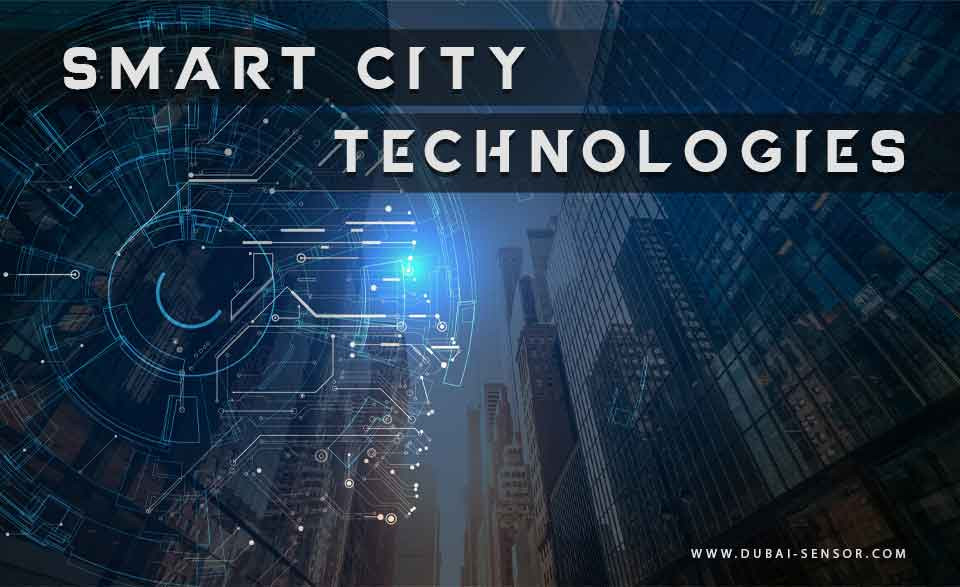Smart City Technologies
The advancement of technologies such as the Internet of Things (IoT), Artificial Intelligence (AI), Blockchain, and Geospatial Technology is critical to the global growth of smart cities.
The recognition that these technologies benefit cities are growing, and significant funds are being invested in these innovations to design smart cities. Smart cities will generate a business opportunity worth more than two billion dollars by 2025. Discover the essential technologies for successfully developing smart cities and their roles and benefits.
Smart City Requirements
A city must meet the following criteria to be considered a smart city:
- Efficient and sustainable natural resource management by all citizens;
- Commitment to the end goal by all citizens and public institutions
- Infrastructures and institutions must be technologically prepared to provide all citizens with new solutions and functions.
Smart cities: essential technologies
Technological literacy is essential for transforming a city into a smart city that is well-connected, sustainable, and resilient, with information that is not only available but also findable. It is not news that smart cities provide smart services to their citizens that can save them time and make their lives easier. It is also about connecting them to the government so they can give the government feedback on how they want their city to be. And without technology, this goal could not be realized.
City officials can gather city intelligence using technology, and this intelligence, when integrated with operations, makes cities smarter and safer.
Look at six technologies that can improve a city's smartness.
Information and Communication Technology
Creating a two-way communication channel is critical for a smart city. And this is where information and communication technology come in. ICT establishes a bridge between citizens and the government, allowing citizens to interact with the government to build a city of their choosing. ICT enables the government to analyze the state's demand pattern and thus create a pool of resources to address it online. Electronic communication in a community contributes to the development of collective intelligence, which can then be used to optimize resources using analytics and deep learning. In the delivery industry, accurate information and competent communication are essential. You can grow your delivery business by using Power bi templates.
The Internet of Things
The Internet of Things is like a network of veins that run throughout the city, connecting each dot. Every device in a smart city must be linked to one another so that they can communicate and make decisions for themselves, allowing for managing a megacity's resources. This is where the Internet of Things comes in, providing the ideal template for a network of communication devices that offer smart solutions to everyday problems. All smart solutions in smart cities are built on the Internet of Things, where everything is connected and smart enough to decide what to do.
Sensors
Sensors are unnoticed but ubiquitous components of the urban environment. Sensors are an essential part of any intelligent control system. A process is improved based on its surroundings, and for a control system to be aware of its surroundings, it is typically equipped with an array of sensors from which it collects the necessary data. It then characterizes its environment using the appropriate variables and adjusts its operations accordingly. The availability of a wide range of sensors and constantly evolving technology enables previously impossible applications due to high costs and limited availability. Sensors function as converters, converting physical parameters to electronic signals that humans can interpret or feed into an autonomous system. Light, pressure, temperature, humidity, moisture, and other parameters are signs of conventional sensors.
Geospatial Technology
Whatever is built in a smart city must be correct, requiring accurate, concise, and detailed data. This is where geospatial technologies come in, as they provide the underlying foundation and, ultimately, the fabric upon which solutions can be built. It includes location, which allows for precise pinpointing of the need so that a better solution can be applied. Geospatial technology provides the necessary framework for gathering data and transforming observations in these collections to facilitate software-based solutions centered on smart infrastructure.
Artificial Intelligence (AI)
A smart city is a digital revolution that generates massive amounts of data. Those datasets are useless unless and until they are processed, resulting in information generation. This enormous amount of data generation necessitates using artificial intelligence to make sense of everything.
AI enables machine-to-machine interaction by processing data and making sense of it. Let us consider an exciting aspect of artificial intelligence in the context of smart cities. In a system where energy spikes are common, AI can learn where they usually occur and under what conditions this information can be used to improve power grid management. Similarly, artificial intelligence is used in intelligent traffic management and healthcare facilities.
Blockchain
Blockchain applications are relatively new to the smart city concept. Data flow is secured by blockchain technology. Its incorporation into smart cities could improve the connectivity of all city services while also increasing security and transparency. In some ways, blockchain is expected to impact cities through smart contracts, which aid in billing, transaction processing, and facility management. Smart contracts are self-executing contracts in which the terms of the buyer-seller agreement are directly written into lines of code. They enable trusted transactions and agreements to be carried out between disparate parties without the use of a third-party mediator, making the process safer, cheaper, and faster. Blockchain can also be used in smart grids to facilitate energy sharing, a popular concept nowadays.
Recent Posts
-
Booster Pump Troubleshooting and Maintenance: How to Fix and Prevent Common Issues
1. Introduction Imagine turning on your faucet only to be greeted with a weak trickle of water when …22nd Apr 2025 -
Energy-Efficient Booster Pumps: Selection and Tips for Maximizing Performance
1. Introduction Imagine never having to deal with fluctuating water pressure, noisy pumps, or skyroc …19th Apr 2025 -
Booster Pumps for Sustainable Water Systems: Irrigation and Rainwater Harvesting Solutions
1. Introduction Water scarcity is no longer a distant threat—it’s a reality affecti …16th Apr 2025




